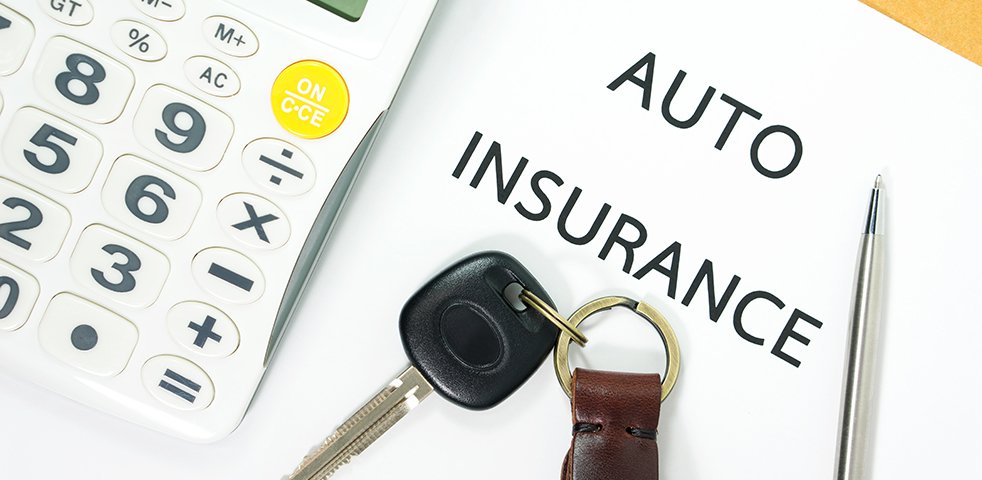Understanding Florida’s Auto Insurance Requirements
Florida is unique in its approach to auto insurance, particularly due to its no-fault insurance law. Under this framework, all drivers are required to carry specific types of insurance coverage to meet state legal requirements. The state mandates that every vehicle owner must maintain a minimum level of auto insurance to ensure that financial protection is available in the event of an accident.
One of the primary components of Florida’s auto insurance requirements is Personal Injury Protection (PIP). This coverage must be set at a minimum limit of $10,000. PIP is designed to cover medical expenses and lost wages for both the insured driver and passengers, regardless of who caused the accident. This no-fault system means that individuals can seek compensation from their own insurance provider without needing to establish fault, streamlining the claims process and reducing courtroom disputes.
In addition to PIP, Florida drivers are also required to carry Property Damage Liability (PDL) insurance. The minimum limit for PDL coverage is $10,000, which is intended to pay for damages incurred by another person’s property in the event of an accident where the insured is at fault. This coverage is essential, as it safeguards drivers against substantial financial losses resulting from property damage claims.
It is vital for Florida drivers to understand these mandatory requirements as failure to maintain the proper auto insurance can lead to penalties, including fines and potential suspension of driving privileges. Furthermore, while these minimum coverage amounts provide a baseline, many drivers opt for higher limits and additional coverage options to enhance their financial protection against unforeseen incidents.
In conclusion, understanding Florida’s auto insurance requirements is crucial for all vehicle owners. Complying with these laws not only fulfills legal obligations but also ensures that drivers have essential coverage in place to protect themselves and others in the event of an accident.
Assessing Your Auto Insurance Needs
When contemplating auto insurance, it is essential to assess your individual needs carefully. This assessment requires a thoughtful evaluation of several factors, including your driving habits, the type of vehicle you own, your overall risk tolerance, and your financial situation. Understanding these elements will assist you in determining the level of coverage necessary to protect both yourself and your assets.
Your driving habits play a significant role in the type of auto insurance policy you should consider. For instance, if you frequently commute, take long road trips, or often drive in high-traffic areas, you may want to opt for higher liability limits to mitigate the financial risks associated with accidents. Conversely, if you primarily use your vehicle for infrequent short trips, you might feel comfortable with the state minimum coverage. Additionally, analyze your vehicle type, as certain makes and models incur higher insurance premiums due to repair costs or theft rates. Vehicles with advanced safety features may qualify for discounts but could also influence the premiums based on repair accessibility.
Next, assess your risk tolerance. Consider how much financial risk you are willing to take in the event of an accident or damage. If the idea of potentially facing high out-of-pocket expenses causes you concern, you may wish to explore comprehensive auto insurance options that provide greater financial protection. Moreover, it’s vital to evaluate your budget. Review your finances and identify how much you can realistically allocate toward your car insurance premium without compromising other essential expenses.
Finally, reflect on whether additional coverage is prudent. While the state minimums fulfill legal requirements, they may not sufficiently shield you from significant losses. Consider enhancements such as collision, comprehensive, or uninsured motorist coverage, especially if your vehicle’s value exceeds the state minimum limits. By thoroughly assessing your needs, you can select the appropriate auto insurance policy that safeguards your interests effectively.
Shopping for Auto Insurance: Where to Start
When embarking on the journey to find suitable auto insurance, it is essential to approach the process with a clear plan. The first step involves researching various insurance providers. This includes gathering a list of reputable companies that offer car insurance in Florida. It is advisable to consider well-established insurers, as they are likely to have a proven track record and reliable customer support.
Next, understanding customer reviews plays a crucial role in evaluating potential auto insurance options. Online platforms, such as consumer review websites, can provide insight into the experiences of other policyholders. Pay particular attention to feedback regarding claims processing, customer service quality, and overall satisfaction with coverage. This information can help you make informed decisions and avoid companies with negative reputations.
Additionally, utilizing tools designed for comparing rates and coverage options can significantly ease your auto insurance search. Websites that aggregate quotes from multiple insurers allow you to view various coverage options side by side, making it easier to spot differences in premiums, deductibles, and benefits. These resources often highlight any discounts that may apply, which can ultimately help in securing lower rates.
While researching, always keep your specific needs in mind. Factors such as your driving habits, the value of your vehicle, and your budget should guide your search for auto insurance. Different providers may cater to diverse demographics, so selecting an insurer that aligns with your criteria is vital. By conducting thorough research, considering customer feedback, and utilizing comparison tools, you will be well-equipped to navigate the landscape of car insurance options available in Florida.
Obtaining Quotes: What You Need to Know
When seeking auto insurance in Florida, one of the initial and crucial steps is obtaining quotes from various insurance providers. This process allows you to compare rates and coverage options tailored to your needs. To facilitate this, you need to gather certain information that insurance companies commonly require. This includes your driver’s license number, which helps insurers assess your driving record and history.
In addition to your driver’s license, details regarding the vehicle you wish to insure are essential. This encompasses the make, model, year, and Vehicle Identification Number (VIN) of the car. These specifics help the insurer determine the car’s value and assess risk factors associated with that particular model. Furthermore, knowing whether the car has been modified or has any existing liens might also influence your car insurance quote.
Your previous insurance history plays a significant role in the quoting process as well. Insurers often ask about your past coverage, any claims filed, and how long you have held continuous insurance. This information not only assists them in evaluating your risk profile but also impacts the premiums you may be offered.
Once you have gathered the required information and contacted different insurers for quotes, it’s important to assess and compare them effectively. Take into consideration not just the price but also the coverage limits, deductibles, and any additional fees. Look for discounts that may apply to you, such as multi-policy discounts if you bundle your auto insurance with home or other coverage. By taking these factors into account, you can make a more informed choice that aligns with your financial situation and coverage needs.
Analyzing Coverage Options and Limits
When seeking auto insurance in Florida, understanding the various types of coverage options available is crucial for making informed decisions. Each type of insurance coverage serves a unique purpose and protects drivers against different risks associated with vehicle ownership and operation. The primary categories of coverage include liability coverage, collision coverage, comprehensive coverage, and uninsured/underinsured motorist coverage.
Liability coverage is mandated by Florida law and protects drivers against claims arising from accidents they cause. It typically includes bodily injury liability and property damage liability. Bodily injury liability covers medical expenses for injuries sustained by other drivers, passengers, or pedestrians involved in the accident, while property damage liability covers the cost of repairs to the other party’s vehicle and property. Understanding how much liability coverage to obtain depends on various factors, including personal assets and risk tolerance.
Collision coverage reimburses policyholders for damages to their own vehicle resulting from a collision, regardless of fault. This type of insurance is particularly advantageous for those with newer or higher-value cars. Conversely, comprehensive coverage provides financial protection against non-collision-related hazards, such as theft, vandalism, or natural disasters, allowing for broader protection of one’s vehicle.
An often-overlooked aspect of car insurance is uninsured/underinsured motorist (UM/UIM) coverage, which safeguards drivers when involved in accidents with motorists who either lack insurance or insufficient coverage. Given that Florida has a significant percentage of uninsured drivers, including UM/UIM coverage in one’s policy is recommended to mitigate potential financial loss.
Choosing appropriate coverage limits is essential and should align with individual circumstances, including the value of the vehicle, budget constraints, and personal risk factors. A thoughtful review of these elements, along with consultation with an insurance agent, can facilitate the selection of optimal coverage, ensuring adequate protection in the event of an accident.
Discounts and Savings Opportunities
When it comes to obtaining auto insurance in Florida, understanding the various discounts and savings opportunities can significantly reduce your overall premium costs. Many insurance providers offer a variety of discounts, which can be beneficial for consumers looking to make their car insurance more affordable.
One of the most common discounts is the safe driver discount. Drivers who maintain a clean driving record, free from accidents and traffic violations for a specified period, may qualify for reduced rates. This incentivizes responsible driving behavior and rewards those who consistently adhere to traffic laws.
Additionally, bundling policies can lead to substantial savings. Many insurers offer discounts for customers who choose to bundle auto insurance with other types of coverage, such as homeowners or renters insurance. By consolidating your insurance needs with a single provider, you may not only streamline your billing process but also benefit from lower premiums on both policies.
Another area where discounts can be found is in vehicle safety features. Insurance companies often provide lower rates for vehicles equipped with advanced safety technologies, such as anti-lock brakes, airbags, and theft deterrent systems. When shopping for a car, considering these safety features can not only enhance your protection on the road but also lead to potential savings on your auto insurance premium.
To further maximize savings, consumers should regularly review their insurance policies and explore available discounts with their providers. Some companies may offer loyalty discounts for long-term customers or discounts for participating in defensive driving courses. Understanding and leveraging these opportunities can help ensure that you receive the best possible rates on your car insurance in Florida.
The Application Process: A Step-by-Step Guide
Obtaining auto insurance in Florida involves a systematic application process designed to ensure that drivers receive appropriate coverage tailored to their needs. Initially, potential policyholders should begin by gathering essential information, including their driver’s license details, vehicle identification number (VIN), and any relevant driving history. This information will form the basis of the application, helping insurance agents assess the risk associated with the applicant.
Next, individuals can obtain quotes from multiple insurance providers. This step is crucial, as it allows for a comparative analysis between different policies, premiums, and coverage options. While researching, it is beneficial to consider both the price and the reputation of the insurance company. Reading customer reviews and checking financial ratings will provide insight into the reliability of the insurer.
Once a preferred quote is identified, the applicant can initiate the formal application process. During this stage, the insurance company will require detailed personal information, including employment status and household details. Additionally, applicants may need to provide information about any previous auto insurance policies, along with any claims that have been made in the last few years.
After submitting the application, the underwriting process will commence. Underwriters evaluate the risk profile of the applicant based on the provided information and additional factors, such as credit history and claims history. This stage can take anywhere from a few minutes to several days, depending on the complexity of the application and the insurer’s protocols.
Finally, applicants should be aware of common pitfalls that might delay or complicate the process. Inaccurate information, omitting past claims, or failing to provide required documentation can lead to higher premiums or even denial of coverage. Understanding these steps ensures a smoother experience in acquiring car insurance in Florida.
Understanding Policy Terms and Conditions
When navigating the world of auto insurance, it is crucial to grasp the specific terms and conditions outlined in your policy. This knowledge not only empowers you as a consumer but also ensures that you are fully aware of what your car insurance provides, including coverage limits, exclusions, and the implications of various types of coverage.
One of the fundamental aspects you will encounter in an auto insurance policy is the definition of coverage limits. These limits indicate the maximum amount your insurer will pay in the event of a claim. For example, if you have a liability coverage limit of $50,000, your insurance company will cover damages or injuries up to this amount. Exceeding that limit may leave you personally responsible for any additional costs incurred, making it essential to evaluate your needs accurately.
Equally important are the exclusions found within the policy. These are specific circumstances or types of damage that the insurance will not cover, such as intentional damage, or driving under the influence. Understanding these exclusions is vital to avoid being caught off guard when filing a claim. A comprehensive review of your policy’s exclusions will help clarify the boundaries of your coverage.
Additionally, distinguishing between liability and full coverage is essential. Liability coverage primarily protects other parties in the event of an accident for which you are at fault, covering their damages and injuries. In contrast, full coverage encompasses both liability and additional protections such as collision and comprehensive coverage, safeguarding your vehicle from various risks including theft, vandalism, and natural disasters. This information highlights the necessity of selecting the appropriate level of coverage that furnishes the required protection tailored to your circumstances.
Managing Your Policy: After You Buy
Once you have successfully purchased your auto insurance policy in Florida, it is essential to understand the key aspects of managing it effectively. First and foremost, keeping your policy updated is crucial. Life circumstances can change, such as obtaining a new vehicle or moving to a different address, and these changes may require adjustments to your coverage. Most insurance providers offer user-friendly online portals where you can manage your account, enabling you to make changes efficiently. This convenience allows you to modify coverage limits, add or remove drivers, and adjust deductible amounts without hassle.
Another significant aspect of managing your car insurance policy is conducting an annual review. Regularly reviewing your coverage ensures that it still fits your needs and financial situation. During this review, assess your current coverage limits, check for any missed discounts, and verify that you have adequate protection against potential risks. Additionally, you may find that certain life changes, such as starting a new job or your monthly commute distance, may prompt a reassessment of your coverage needs.
Lastly, understanding the process of filing a claim is essential to effectively managing your auto insurance policy. Familiarize yourself with the claims procedure outlined by your insurance provider so that you are prepared in the event of an accident or loss. Typically, insurance companies offer 24/7 support for claims and require specific information, such as the accident report, photos of the damage, and any witness details. Quick and accurate claim filing can facilitate a smoother recovery process, ensuring that you can get back on the road without unnecessary delays.
In conclusion, actively managing your auto insurance policy after purchase is vital for maintaining adequate coverage and financial protection. Regularly reviewing your policy ensures you are aligned with your current needs, while a clear understanding of the claims process can help you navigate unexpected events efficiently.



